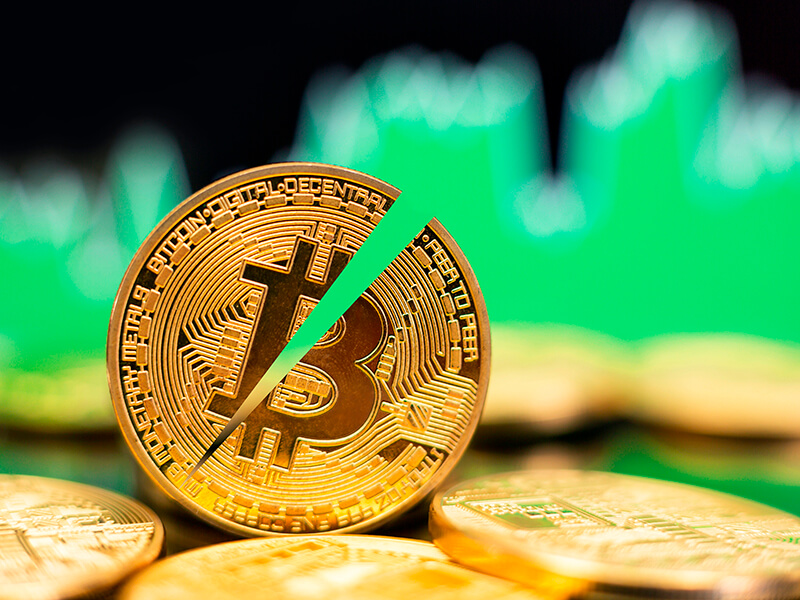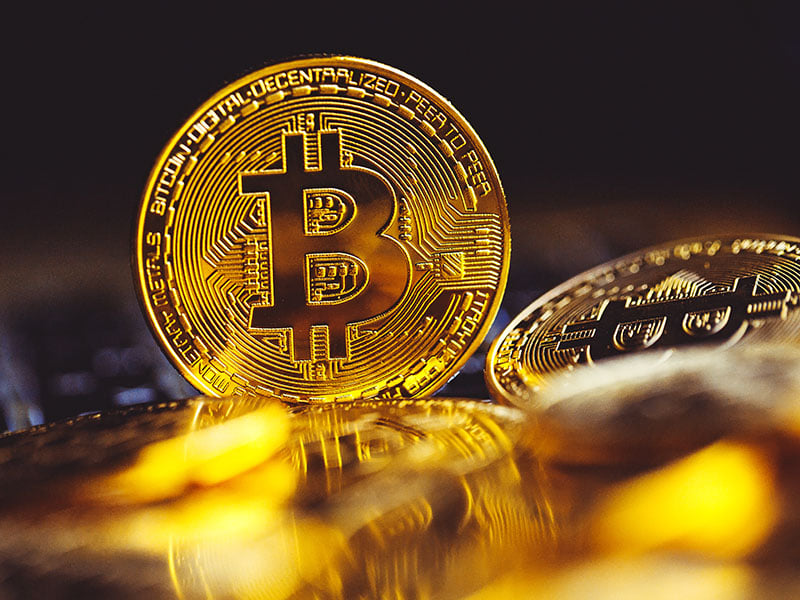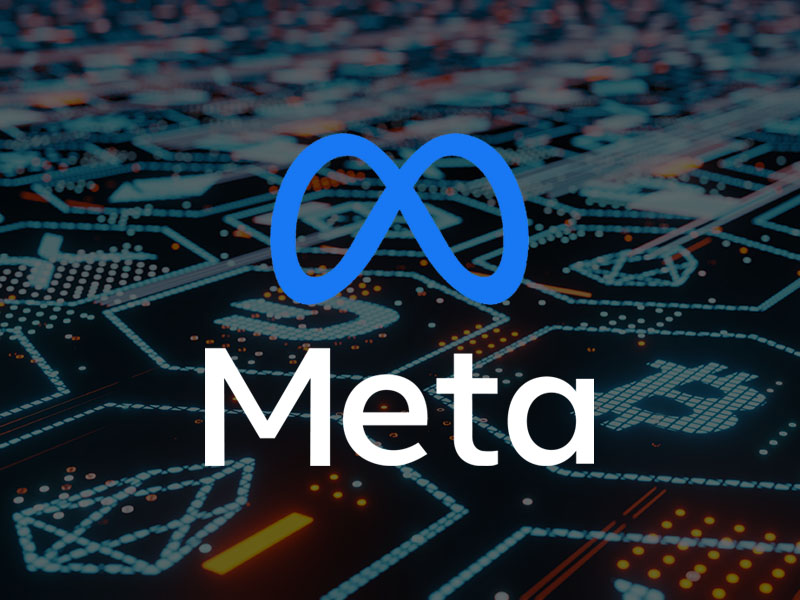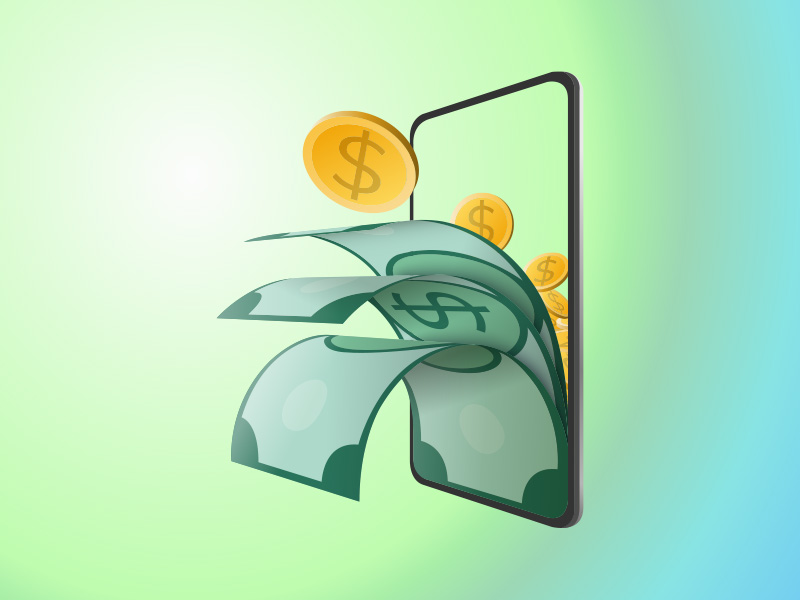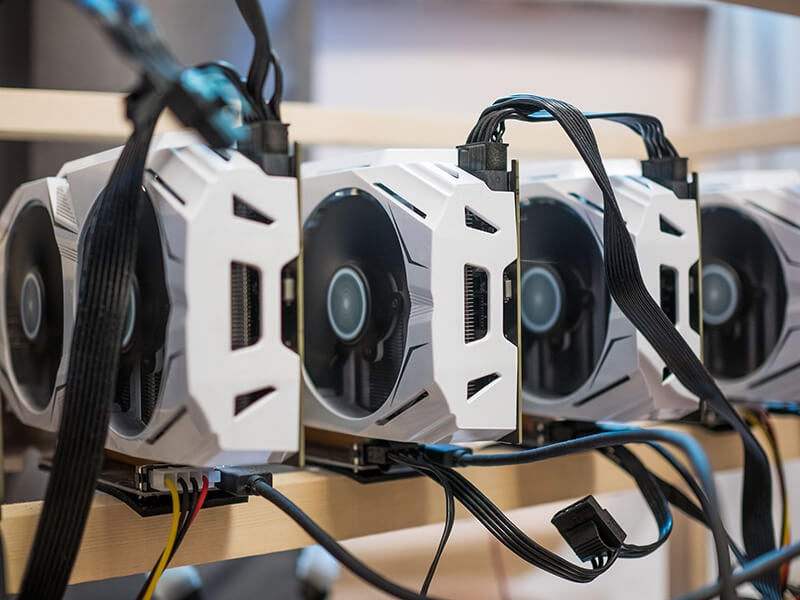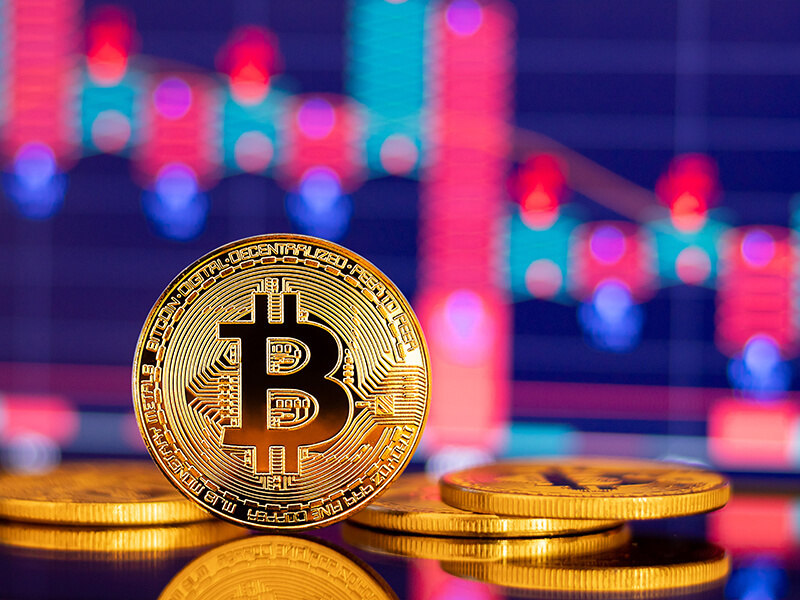What is Bitcoin Halving and how does it affect the cryptocurrency?
25/02/2024The term "Halving" in the context of Bitcoin refers to a scheduled event in the cryptocurrency protocol, in which the reward for mining blocks is reduced by half. This event occurs approximately every four years and has a significant impact on the supply and demand of Bitcoin. During Halving, the number of new Bitcoins created per block is halved. This implies a decrease in the issuance rate of the cryptocurrency, which in turn can have an effect on the price and volatility of Bitcoin. Many analysts and experts are speculating about the long-term implications of the Halving and its influence on the cryptocurrency markets. Services related to Bitcoin Halving There are various types of services and tools related to Bitcoin Halving that can be beneficial for different actors in the cryptocurrency ecosystem. These services include: 1. Halving analysis and forecast This type of service provides detailed information about the past, present and future of the Bitcoin Halving. Through analysis and forecasting, it helps investors and cryptocurrency enthusiasts make informed decisions on how to position themselves before and after the event. 2. Bitcoin Mining As the reward in Bitcoin decreases, mining this cryptocurrency becomes more challenging. Bitcoin mining services offer solutions and advice to maximize mining efficiency and profitability, even in a low reward environment. 3. Financial advice related to Halving As the issuance rate of Bitcoin slows, investors may need to adapt their investment strategies. Financial advisory services specialized in cryptocurrencies and Bitcoin provide personalized recommendations and analysis to optimize investment performance in this context. 4. Development of tools for cryptocurrencies The Bitcoin Halving may generate changes in the cryptocurrency ecosystem, which may require the creation of new tools and solutions. Companies specialized in software development and applications related to cryptocurrencies can provide development and consulting services to adapt to these new demands. Bitcoin: Reward Reduction and Its Implications on the Cryptocurrency Ecosystem Bitcoin, the most famous and valuable cryptocurrency in the world, has periodically experienced an event known as a "reward reduction" or "Halving", which has significant implications on the cryptocurrency ecosystem. In this article, we will explore in depth what Bitcoin reward reduction is and how it affects both miners and investors. What is Bitcoin reward reduction? Bitcoin reward reduction is a scheduled event integrated into the cryptocurrency protocol. It occurs approximately every four years and consists of a halving of the reward miners receive for validating transactions and adding new blocks to the Bitcoin blockchain. Originally, when Bitcoin was launched in 2009, miners received a reward of 50 Bitcoins for each block mined. However, due to the reward reduction process, this amount has decreased over time. In 2012, it was reduced to 25 Bitcoins per block, in 2016 to 12.5 Bitcoins per block, and in 2020 it was reduced again to 6.25 Bitcoins per block. Implications for Bitcoin miners Bitcoin's reward reduction has a significant impact on mining the cryptocurrency. With each reduction, miners receive fewer Bitcoins for their work, which means less direct monetary reward. This may result in some miners leaving the Bitcoin network, especially those with higher electricity and mining equipment costs. On the other hand, those miners who manage to adapt and remain profitable even with a lower reward are rewarded with a larger share of the Bitcoin supply generated through mining. This concentration of Bitcoins in the hands of fewer miners can have effects on the decentralization and security of the network, since the number of active participants in the transaction validation process is reduced. Implications for investors and the price of Bitcoin Bitcoin's reward reduction also has implications for the price and supply of the cryptocurrency. As the issuance of new Bitcoins decreases, the supply in the market reduces. This may lead to higher relative demand if Bitcoin demand continues to grow or remains stable. In previous reward reduction events, a long-term increase in Bitcoin price has been observed. This is because the decrease in the supply of new Bitcoins can lead to greater perceived scarcity and therefore an increase in their value. However, it is important to note that the price of Bitcoin is highly volatile and can be influenced by a variety of external factors, so a continued increase after reward reduction cannot be guaranteed. Bitcoin's reward reduction is a key event in the life of the cryptocurrency and has implications for both miners and investors. As the number of new Bitcoins generated is halved, miners must adapt to remain profitable and the supply of Bitcoin on the market may decrease. However, this event can also have a positive impact on the price of Bitcoin in the long term. It is important to understand and take these factors into account when evaluating investment potential in Bitcoin and the cryptocurrency market in general. Bitcoin and limited supply: a unique combination Bitcoin has captured the attention of the financial world like no other cryptocurrency. One of its most notable features is its limited supply, meaning that only a finite number of bitcoins will be created in the world. This contrasts with traditional fiat currencies, which can be printed at the discretion of governments. How does Bitcoin limited supply work? Bitcoin was designed to have a total supply of 21 million coins. As new blocks are mined by users and added to the Bitcoin blockchain, new coins are generated and distributed as rewards to miners. However, this reward is halved in an event known as "Halving", which occurs approximately every four years. Halving ensures that the rate of issuance of new bitcoins decreases over time, following a predictable mathematical function. Currently, the reward per mined block is 6.25 bitcoins, but this number is expected to reduce further in the future. This controlled scarcity mechanism is a central part of Bitcoin's monetary policy. Advantages of Bitcoin Limited Supply Bitcoin's limited supply has several significant advantages: Sense of scarcity: The limitation in the supply of Bitcoin makes it a scarce and valuable asset. As it approaches its maximum supply, demand and price are expected to increase. Inflation Protection: Unlike fiat currencies, Bitcoin cannot be inflated or devalued at the discretion of governments. Its limited supply protects it from inflation and makes it a safe store of value. Monetary stability: With carefully controlled supply, Bitcoin offers greater monetary stability compared to national currencies, which can be affected by political and economic decisions. Challenges and debates surrounding the limited supply of Bitcoin Despite the advantages, Bitcoin's limited supply has also generated debates and challenges. Some argue that the scarcity of bitcoins could hinder its mass adoption as an everyday currency. Price volatility is also an issue of concern. Furthermore, the fact that only about 80% of all existing bitcoins have been mined raises questions about how the latest bitcoins will be distributed and how this will affect the network and its sustainability in the future. Bitcoin has revolutionized the financial world with its limited supply and unique monetary policy. Controlled and predictable scarcity is an essential part of its design, providing a solid alternative to traditional fiat currencies. Although limited supply can pose challenges and debates, it also offers significant benefits, such as a sense of scarcity, protection against inflation, and monetary stability. As Bitcoin continues to mature and its supply approaches its maximum limit, its value and relevance in the financial world continues to grow, leaving investors and enthusiasts with great anticipation about its future.
[ ... ]Madrid taxis already accept payment with cryptocurrencies
24/05/2022From this month of May, Madrid taxi users will be able to pay in cryptocurrencies. The possibility of this new means of payment comes after the agreement between the taxi sector and the Woonkly company, which has distributed dataphones to all taxi drivers so that payment with cryptocurrencies can be made. Madrid is the first city in Spain to introduce this means of payment in taxis, which is also contemplated by various municipalities in the United Kingdom and the Scandinavian countries. At the moment, the cryptocurrencies accepted in Madrid taxis are Ethereum, Bitcoin BEP2, Woonkly Power, Binance Coin, Cardano, Avalanche, Binance USD, Polkadot, USD Coin, Tether and Wrapped BN. The technology of the dataphones that are prepared to print the proof of the operation once the payment has been made, belongs to Waynance, a firm from Alicante, whose payment gateway has become the first universal payment system for cryptocurrencies. It allows payments done from any payment platform (POS, e-commerce, etc.), with any cryptocurrency, through any decentralized wallet and, above all, instantly.
[ ... ]Meta would abandon cryptocurrencies to bet on tokens
13/04/2022The Financial Times has published that Meta, the company that owns Facebook and Instagram, is working on a new digital currency that, at least internally, has already been baptized as "Zucks Bucks", in a clear reference to its founder and CEO, Mark Zuckerberg. After the two failures of Meta related to cryptocurrencies, Diem and Libra, it seems that the new project would focus on the development of tokens that could be used in the company's Apps to acquire presentations or advantages. In parallel, Meta is also studying the integration of NFT in Facebook, a beta version of which could be ready in a few weeks, in mid-May.
[ ... ]SQUID, the cryptocurrency of "The Squid Game" collapses
08/11/2021In just over a week, SQUID, the cryptocurrency that was launched on the market at the pull of "The Squid Game" has seen its value plummet after it was reported that his anonymous founders had withdrawn the cryptocurrency and all the earnings of the people who had invested in it. SQUID launched on October 26th at prices of $ 0.01 and reached its record price of $ 2,856.64 on November 1st. At that time, according to the users affected, the website created for this cryptocurrency was not working anymore and users could no longer sell their SQUIDS, or protect their Investments. According to the first investigations, the creators of the cryptocurrency of "The Squid Game", charged all their coins for real money, depleting the liquidity fund of the exchange that cannot sustain its value. The platform through which this cryptocurrency was traded did not have any official endorsement.
[ ... ]What is Worldcoin and what does scanning the iris involve?
04/03/2024Worldcoin was introduced in summer of 2023 as a revolutionary project with the mission of creating a 100% secure digital identity, essentially a kind of fortified "digital passport," based on the verification of a unique and non-transferable element inherent to each human being—the iris. According to its developers, World ID will help distinguish human online activity from that generated by machines. In the first phase of the project, the creation of this secure digital identity is planned for 2 billion humans. To make this possible, Worldcoin has called on the global population to scan their iris. In return, Worldcoin compensates participants with a few tokens of its successful cryptocurrency, WLD, which has quadrupled in value within a few weeks of its initial launch. The payment in WLD tokens is not coincidental; it is part of Worldcoin's strategy, aiming to leverage the new digital passports to create a comprehensive ecosystem that provides universal and equitable access to advanced financial services for the entire global population. To achieve this, they encourage "iris sellers" to use the Worldcoin cryptocurrency on its fee-free blockchain, unlike Bitcoin, Ethereum, or other cryptocurrencies that do charge transaction fees. How does Worldcoin work? Worldcoin aims to address the issues of bots, rapid creation of fake identities, and content with artificial intelligence. It is designed, according to its developers, to provide every individual in the world with a unique digital identification. Additionally, Worldcoin promises to ensure the financial inclusion of each person in a fair and equitable ecosystem through a universal basic income. Users receive this income in exchange for allowing their iris to be scanned. To create the secure digital passport with Worldcoin, users must undergo an iris scan, which serves as proof of humanity and a unique identity on the blockchain. This process ensures that the individual on the other side of that identity is a human and not a fake profile created with artificial intelligence. In pursuit of the success of their proposal, the company offers users a small amount of their own Worldcoin tokens in exchange for iris scanning. The initial incentive of receiving free cryptocurrency, in the form of a universal basic income, is emphasized by Worldcoin advocates as the basis for the inclusive and universal nature of their initiative. This approach allows anyone to scan their iris, and the WLD tokens received in return can assist people without access to traditional financial services in starting to save and invest. How to Scan the Iris with Worldcoin? The registration process with Worldcoin involves scanning the iris with an orb, the central hardware device of Worldcoin developed by Tools for Humanity. The orb is spherical and processes all the information. Currently, Worldcoin has installed orbs in different countries, including Spain, where users can scan their iris in exchange for Worldcoins. To do this, it is necessary to download the Worldcoin mobile application, World ID, generate a QR code with it, and display it in front of the orb. The orb, upon recognizing it, will scan the user's iris, while a Worldcoin collaborator remotely oversees the operation. The orb takes less than a minute to perform the scan and validate the subject's identity. In exchange for their iris, the user receives a unique number called "IrisHash" and a cryptographic wallet with Worldcoins. "This digital passport is accepted as proof of unique humanity, which people can use in the digital world without the need to share any other data," assure its developers. What happens with my scanned iris in exchange for Worldcoins? Once the iris scan is completed, and digital identity is granted to the user, Worldcoin assures that the orb quickly eliminates the images unless the user requests their preservation. Only the set of numbers called "IrisHash" is stored for identification, without any additional biometric data. Worldcoin also commits to ensuring that users share only the necessary information they wish to share, providing verification options through linked devices or the additional facial authentication orb for high-security cases. Despite these commitments, the collection of biometric data through iris scanning for the unique proof of humanity continues to raise significant questions regarding privacy and information security. Some countries such as Brazil, France, India, or Kenya have halted Worldcoin's iris scanning. How much do you get paid for scanning your iris? Worldcoin pays 25 WLD for scanning your iris, which, according to the cryptocurrency's exchange rate in February 2024, has translated to an average of between 50 and almost €160 for iris sellers, depending on the value of Worldcoin on the day they scanned their iris. At the beginning of February, the value of each WLD unit was around two euros, and by the end of the month, it had risen to nearly seven euros. What can I spend my WLD on? 'Iris sellers' have the freedom to use their Worldcoins from the moment they receive them. They can exchange the payment for other cryptocurrencies, withdraw them in euros from a specialized ATM, or hold onto the tokens in the hope of an increase in their value. Additionally, WLD payments are already accepted on platforms such as Discord, Shopify, Minecraft, Telegram, Mercado Libre, or Reddit, among other places. Who is behind Worldcoin? Worldcoin bears the stamp of two innovative minds: Sam Altman and Alex Blania. Altman is the CEO of OpenAI and a key figure in artificial intelligence development, leading projects like ChatGPT. Blania, on the other hand, is the co-founder of Tools For Humanity, contributing his experience in creating technological tools for a more equitable economic system to this new and successful cryptocurrency.
[ ... ]The United States accelerates the digital dollar
23/11/2022After US President Joe Biden ordered this past week to urgently evaluate the creation of the digital dollar, the Federal Reserve Bank and companies such US Bank, Citi, HSBC and Wells Fargo have announced a pilot prove to test the new currency. The digital Dollar will be issued centrally and its regulated liability network (RLN) will be tested for twelve weeks, during which the participating banks will operate in a simulated way, using tokens that will act as deposits from their clients that will be settled in a central reserve in a shared distributed ledger. This will be use to evaluate its security and operation in financial transactions and agreements. In parallel, China continues to promote the Digital Yuan and the European Central Bank (ECB) is also advancing in the creation of the digital euro, a project that the latest information indicates it cab be already viable in 2025. And while all this is happening, the information that ensures an imminent regulation for cryptocurrencies increases.
[ ... ]The mining hardware market is booming
09/09/2021There is no doubt about it: cryptocurrency mining is booming. According to a report by Technavio, the mining hardware market is expected to grow by about €2.4 billion between 2020 and 2024. It would grow at an annual rate of more than 7%. So much so that Facebook has already announced that it will launch its own cryptocurrency, a stablecoin pegged to the fiat currency of the country where it operates. It also announced that it will get involved in the NFT industry. Meanwhile, interest in different types of mining tools continues to grow. Day after day, miners join the network. “It began as a niche hobby. Early adopters had to set up rigs on their own and then figure out how to connect them to pools (groups of miners) and earn profit. But since hosting facilities became a thing, anyone can purchase a rig and earn some passive crypto”, explains Josh Metnick, CEO of Navier, a company that hosts different types of miners.
[ ... ]Ransomwhere, new platform to track cyberattack payments
13/07/2021This week was made known the unveiling of Ransomwhere, a new collaborative data platform born with the intention of being able to track 'ransomware' ransom payments to cybercriminals wallets. The platform launched by cybersecurity researcher Jack Cable, allows data to be entered into the Ransomwhere website in an open and transparent format, so that users can easily report on the cryptocurrency wallets used in their ransomware attack payments, often included in the ransom notes of the attacks, and through this data the figure obtained in extortion payments to cybercriminals is obtained. As these payments are made with cryptocurrencies, the transactions can be traced as they are opened by the use of the blockchain or Blockchain. According to the first data obtained in these first weeks of operation, Ransomwhere has reported that it has already recorded more than $33 million paid this past year in ransomware and accumulated data of about $28 million more satisfied previously. This information also shows that the ransomware with the highest income so far is Netwalker, with more than 27 million dollars, followed by REvil / Sodinokibi, with more than 11 million.
[ ... ]What is the value of a Bitcoin?
11/06/2021Since Bitcoin first appeared in 2009, this digital currency not issued by any government or company, nor, under the umbrella of any kind of economic policy, has gained a foothold in the market and has already started to fit into existing legal frameworks. What gives Bitcoin its value? The great value of Bitcoin is that it is a decentralized and global currency, an alternative to fiat currencies (those issued by governments). All transactions with Bitcoins are public and each of these crypto currencies belongs exclusively to its owner, therefore, it is a currency that cannot be intervened by anyone. What can I do with Bitcoins? To date, with this cryptocurrency, it is possible to monetize all kinds of services, in addition to making investments, free or practically free of commissions, which in the medium to long term are proving attractive. This has made Bitcoin an asset in which to invest and an increasingly popular means of payment through which to transfer value from one user to another without losing friction along the way, going through an intermediary or paying a commission. What is the price of a Bitcoin? Like any other good, the price of a Bitcoin varies according to market demand, although the fact that it has been designed to behave as a deflationary asset and that its supply is limited to 21 million coins, facilitates that by the law of supply and demand itself, the Bitcoin exchange rate tends to rise continuously. As of June 9, at the time of writing this article, the Bitcoin value today is 30,007.86 euros, 3.4 times its price a year ago, when the Bitcoin to Euro conversion rate was 8,629.5 Bitcoins for 1 euro. In 2010 Bitcoin price was less than one Euro cent. What does the value of Bitcoin depend on? The value of Bitcoin depends on the trust and acceptance of users to use it, hence why Bitcoin is rising in value some days and not others. As Bitcoin has been implemented as a means of payment in multiple transactions and its popularity has grown, its value has grown in parallel. Likewise, when there have been news or events that have questioned, for example, the suitability of this crypto currency, its price has fallen. Like any other currency, the price of Bitcoin fluctuates and it is the users themselves who set it at the time of the purchase and sale transaction, which prevents the existence of a single price for Bitcoin, since it is not operated through a single platform as is the case with other currencies. Even so, buying and selling prices of Bitcoins tend to be quite similar. To know how much Bitcoin costs, there are several online platforms, known as "Bitcoin trading platforms" that report live the evolution of the value of the cryptocurrency. Is it safe and profitable to invest in Bitcoin? As with any other asset, investing in Bitcoins is profitable if we know how to do it at the right time. On the other hand, the Blockchain technology on which Bitcoin is based is reliable and difficult to manipulate, with no risk of being counterfeited, although some experts believe that the perfect, 100% inviolable system has not yet been created. In the cryptocurrency segment, convertibility is contemplated, so that Bitcoins can be exchanged for fiat currencies. What can I buy with Bitcoins? Over the last few years, a large number of companies have incorporated Bitcoin as an official method of payment for their goods and services From travel companies to ticket sales platforms for all kinds of shows, through gaming platforms, digital bookstores, software stores or even non-profit organizations already accept this digital currency. That is, Destinia, 13tickets, Gear Best, Shopify, Wordpress, Hostinger, Greenpeace,... among many other companies. eBay is currently considering adding Bitcoin as a method of payment. What is Bitcoin mining and how are Bitcoins generated? The users themselves through a totally decentralized system create Bitcoins. To become a bitcoin creator, computers with high computational capacity are needed to process and verify transactions and quickly solve the complex digital processes of generating the currency. This work is called mining and one of its best attractions is that the system offers "miners" rewards in Bitcoins in exchange for these services, which has made this activity very appealing for certain users. Is it profitable to mine Bitcoins in Spain? Bitcoin mining requires very powerful equipment, with high calculation capacities to solve operations, being nowadays totally inoperative for this operation the PCs of domestic or office use. The investment to mine Bitcoins requires, in addition, to assume the large power consumption required by this more powerful equipment, which makes Spain, at this time due to the high price of KW/h, an uninteresting market for mining Bitcoins. On the contrary, other locations such as China, Iceland, Iran or Georgia, where the Bitcoin mining business is in full expansion, are very interesting.
[ ... ]

